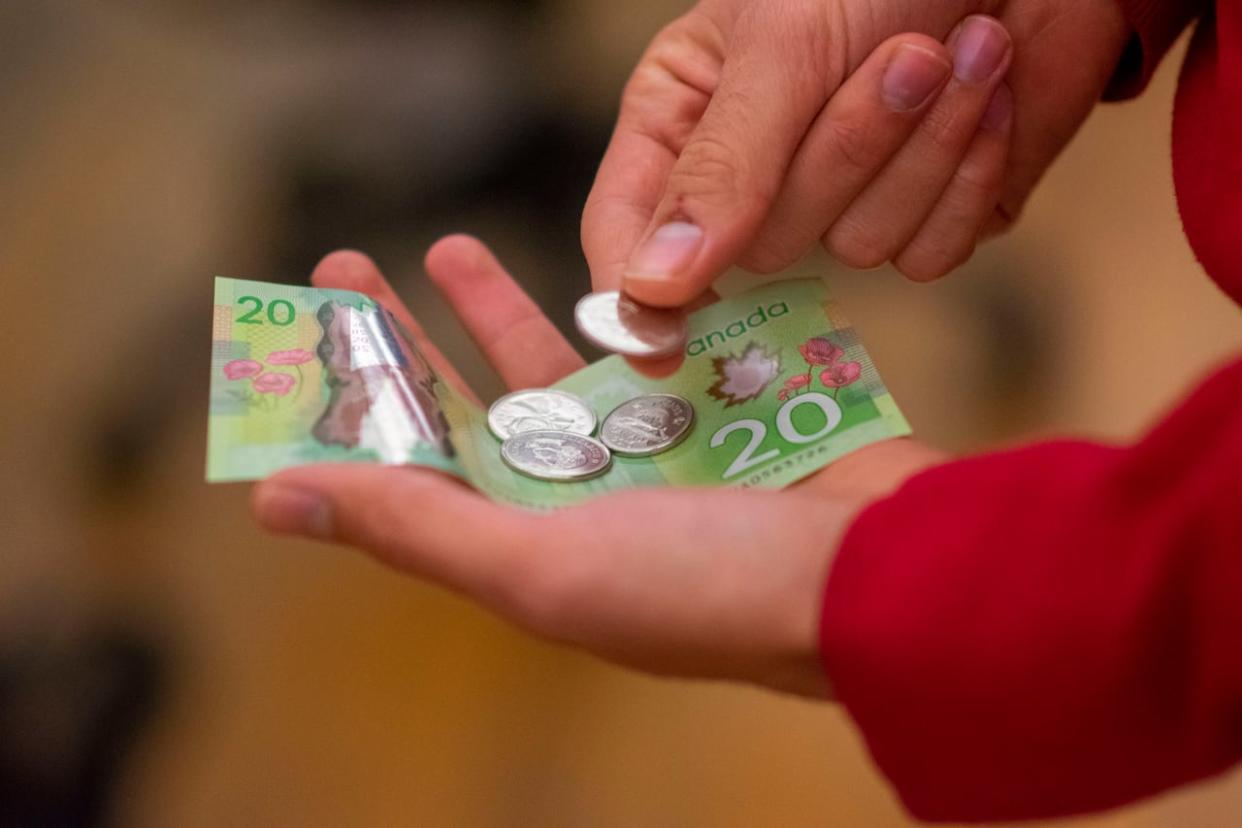B.C.'s minimum wage to increase to $17.40 an hour on June 1

Minimum wage workers in British Columbia will see their pay increase to $17.40 from $16.75 an hour starting June 1.
The 3.9 per cent pay bump reflects B.C.'s average annual inflation rate in 2023, the province says.
The province first tied minimum wage increases to inflation in 2022. In 2023, B.C. raised the minimum wage by 6.9 per cent.
B.C. Labour Minister Harry Bains said amendments to legislation will ensure future minimum wage increases will be automatically linked to the previous year's average inflation rate for B.C.
"We made a commitment to tie minimum wage increases to the rate of inflation to prevent B.C.'s lowest paid workers from falling behind," Bains said, adding that British Columbia has gone from having one of the lowest minimum wage rates in the country to having the highest.
The province says at least eight other Canadian jurisdictions also base minimum wage increases on the rate of inflation determined by the Consumer Price Index.
Advocacy group Living Wage for Families B.C. welcomed the news, but said more needs to be done to close the gap between the minimum wage and the living wage, the minimum amount needed for two working parents to cover living expenses for a family of four.
The living wage varies among regions of the province.
Iglika Ivanova, senior economist and public interest researcher with the Canadian Centre for Policy Alternatives, says the new minimum wage will be well below the living wage in every part of B.C.
Living Wage for Families B.C. says there is a gap of more than $8 between the minimum wage and Metro Vancouver's living wage — a difference that amounts to about $15,000 a year for a full-time worker.
A November report compiled by the Canadian Centre for Policy Alternatives found that one-third of two-parent families in Metro Vancouver do not make a living wage — $25.68 per hour, up 6.6 per cent from $24.08 in 2022.
The Surrey Board of Trade was critical of the increase, saying the province should focus on reducing costs to businesses.
It said B.C.'s Consumer Price Index in January was three per cent higher than the same time last year and Canada's unadjusted CPI was 2.9 per cent higher, numbers that both come in below the 3.9 per cent increase to the minimum wage.
"Depending on what inflation metric is used, minimum wage increases could still be unsustainable as inflation is in itself unpredictable," board president and CEO Anita Huberman said.
The board is calling on the province to form a commission to review taxes and red tape affecting businesses.
Ivanova says the board cherry-picked CPI numbers "so that they end up being lower" than the annual rate of inflation, which is a more accurate measure.
Ivanova said small businesses are struggling and need to be supported in ways that don't involve low wages.
"It shouldn't be low-wage workers who are subsidizing small business," she said. "Helping small businesses shouldn't come on the back of the lowest-earning people in our economy."


